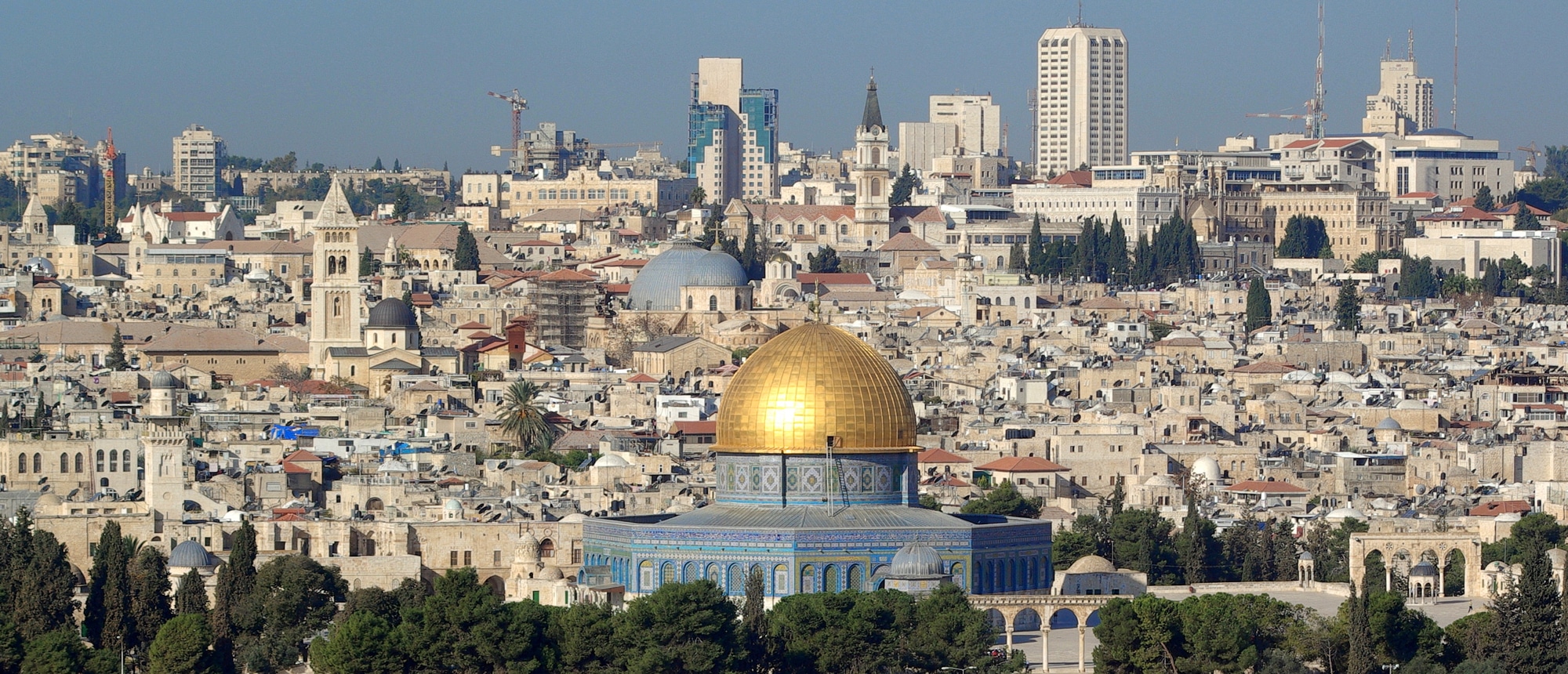Trump Delivered A Fatal Blow To Peace In The Holy Land
Two years ago Friday, President Donald Trump formally recognized Jerusalem as Israel’s capital. It was an irresponsible, dangerous and cruelly insensitive act that did grave damage to the rights and well-being of Palestinians and put an end to any pretense that the United States could help negotiate a resolution to the Israeli-Palestinian conflict.
From the beginning of the modern “peace process,” there have been two fatal flaws that have hampered the effort: the asymmetry of power in Israel’s favor and the clear US bias in support of Israel. The unilateral American recognition of Jerusalem emphasized both flaws. It prejudged one of the conflict’s most sensitive issues in Israel’s favor and emboldened and rewarded the most hardline elements in Israel while compromising those Palestinian and Arab leaders who had put their trust in the US role. The decision to recognize Jerusalem as the capital made clear that the US could not be an honest broker.
Jerusalem is not to be toyed with. It is not just any city. It is central to the narratives of all three Abrahamic faiths. For this reason, the architects of the 1947 UN plan that partitioned Palestine into Jewish and Arab states set it aside as an international zone. It was for this reason that when Israel occupied the Western side of the city following the 1948 Arab-Israeli War, and later declared Jerusalem as its capital, that unilateral decision was never recognized by the international community.
Israel compounded their defiance in 1967 when, after occupying the rest of Palestine, they annexed a substantial area of Palestinian land (including a number of Palestinian villages) as a result of the Six-Day War and declared the entirety of West and East Jerusalem as “Greater Jerusalem” insisting that it was their “eternal undivided capital.”
This flagrant violation of international law was unanimously condemned by the United Nations. Seen in this context, Trump’s action puts the US stamp of approval on Israel’s 70-year record of violations of law and UN Resolutions.
For Arabs and Muslims world-wide, Jerusalem has become a powerful symbol representing a century of betrayal by the West. Like the issue of Palestine itself, mention of Jerusalem evokes broken promises, brutal occupation by imperial and colonial powers, loss of control of history and denial of fundamental rights.
I often remind American audiences that Jerusalem is to Arabs and Muslims what the 1890 massacre at Wounded Knee was to Native Americans. It may not have been their tribe that was involved in the infamous brutality inflicted on those who were killed at Wounded Knee—but they can understand the tragedy that took place and collective history dispossession and continuous hurt. Jerusalem is the wound in the heart of Arabs and Muslims that never healed. With his callous decision to effectively absolve Israel of its crimes and recognize their control of the city by conquest, Trump rubbed salt into this wound.
It was, therefore, absurdly insensitive and galling for the US President to couple his provocation with an appeal to Palestinians to remain calm and peaceful. He was, in effect, saying: I don’t care what you have suffered, nor do I care how unjust and illegal Israeli actions have been, just sit back and take it.
I would add that while, with his decision, Trump was playing to his right wing evangelical Christian supporters, he ignored the feelings of the Christian community in Palestine. In a statement issued the day before the President’s announcement, the Patriarchs and Bishops of the Eastern Christian churches headquartered in Jerusalem pleaded with him not to recognize Israel’s exclusive claim to the city.
Finally, there is the reality of daily life for Palestinians in and around Jerusalem. Having largely closed East Jerusalem from the rest of the West Bank, Israel has accelerated its policy of strangling the life out of Arabs in Jerusalem. Denied employment, victimized by home demolitions and land theft, and subject to a host of discriminatory policies that violate fundamental human rights, the endurance of East Jerusalem’s Palestinian Arab population is tested daily. Trump’s silence on these matters, while offering a hollow “God Bless the Palestinians” at the end of his remarks on December 6th 2017, was more like “ashes in the mouth” than an expression of real concern. It aggravated more than it comforted.
While Americans remember December 7, the date of the Japanese attack on Pearl Harbor, as “a day of infamy,” Arabs and Palestinians may well feel the same about December 6— the date President Donald Trump delivered a fatal and fateful blow to peace and justice in the Holy Land.

